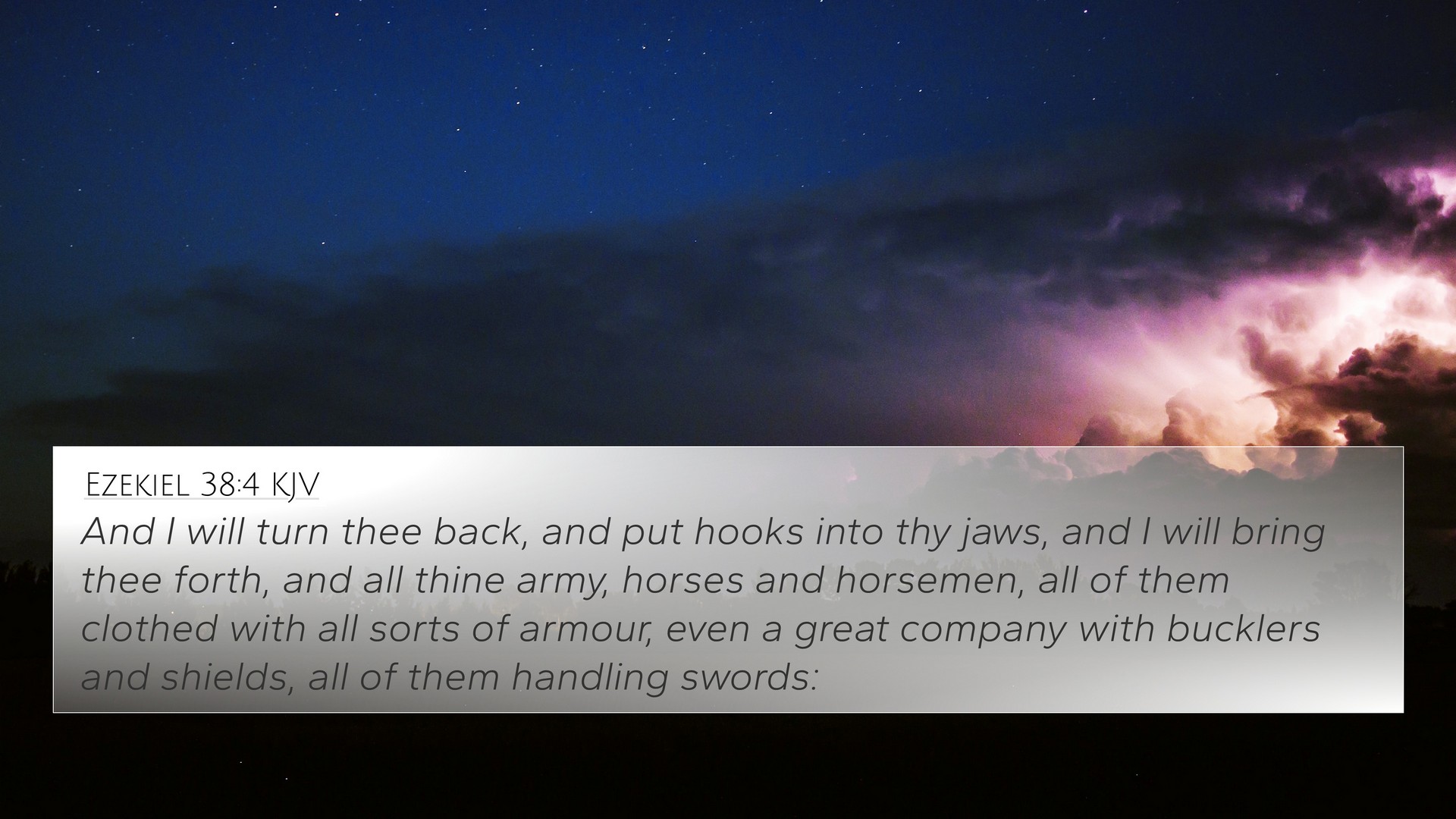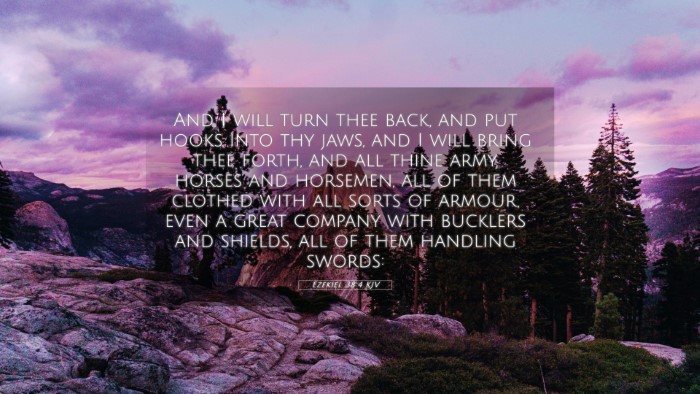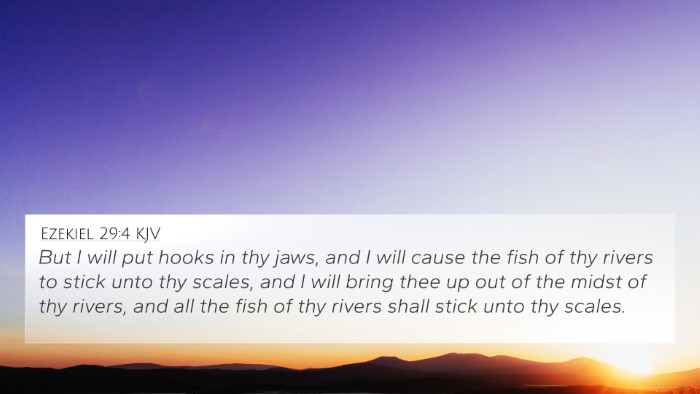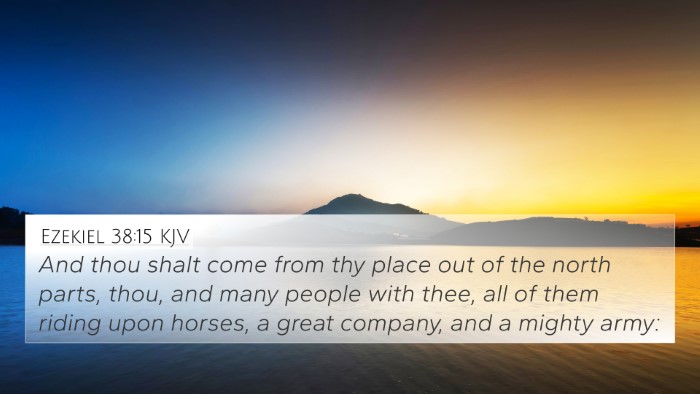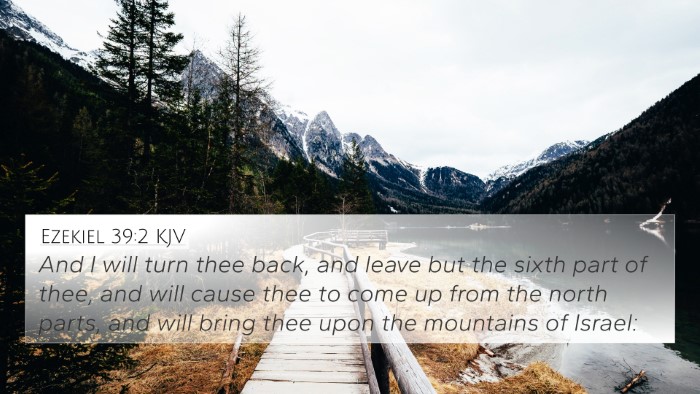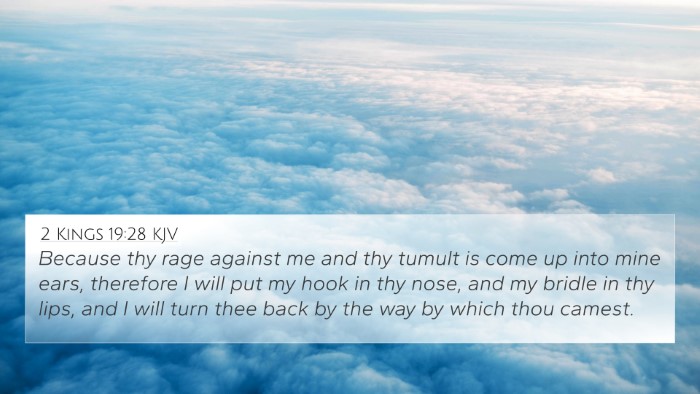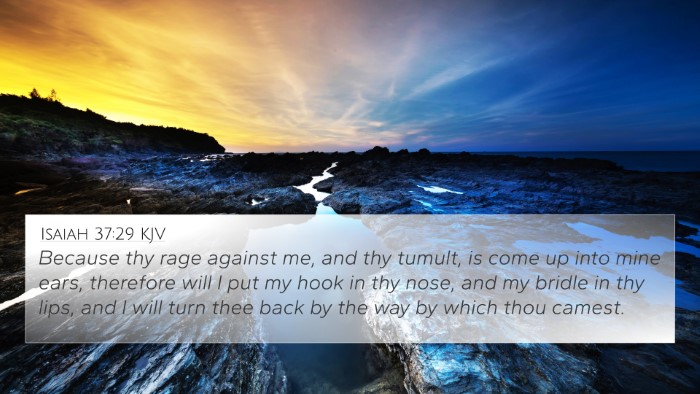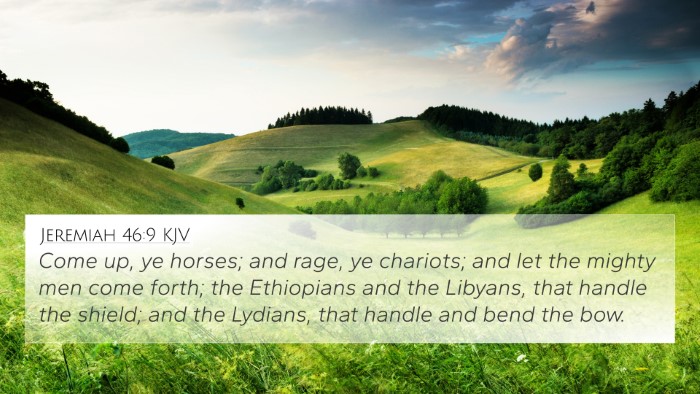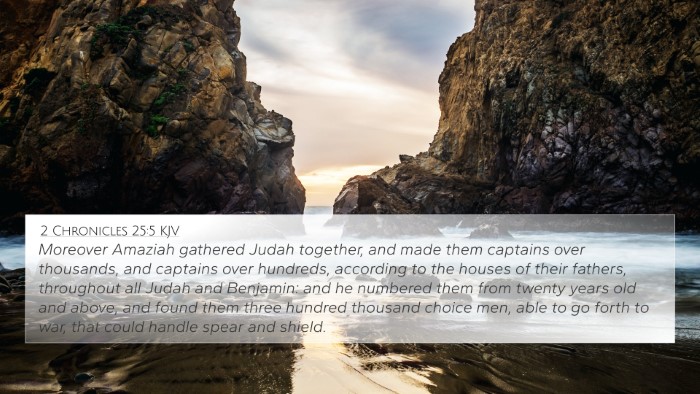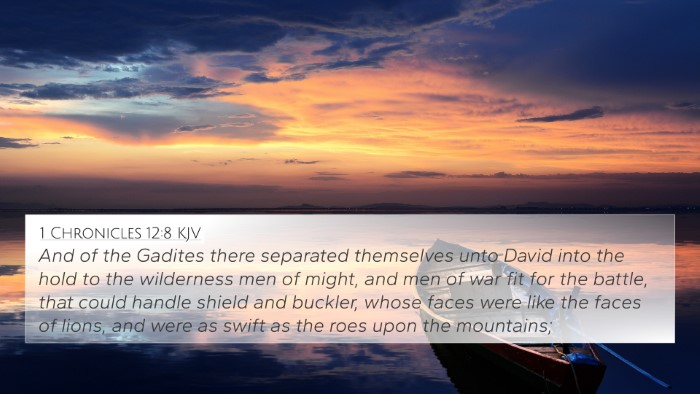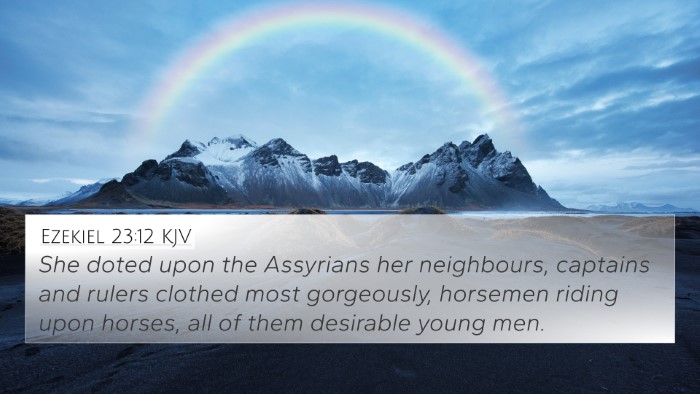Ezekiel 38:4 - Understanding the Verse
Ezekiel 38:4 states: "And I will turn thee back, and put hooks into thy jaws, and I will bring thee forth, and all thine army, horses and horsemen, all of them clothed with all sorts of armor, even a great company with bucklers and shields, all of them handling swords." This verse is central to understanding the prophetic imagery used by the prophet Ezekiel regarding the future conflict involving Gog, a personification of evil nations aligned against Israel.
Contextual Analysis
Ezekiel 38 represents a significant prophecy concerning Israel's future and the divine judgment of invading nations. Matthew Henry explains the imagery of "hooks in thy jaws" as God’s sovereign control over nations that plot against His people. This illustrates the utmost power of God in directing the events of history.
Interpretation by Commentators
-
Matthew Henry:
Henry emphasizes God's ultimate authority in judgment, portraying the invasion as a divine setup where God draws the enemy into battle, ultimately to be defeated. The "hooks" symbolize the idea that just as fish are caught, so too will God lead the invading forces into a trap.
-
Albert Barnes:
Barnes interprets "turn thee back" as God's invitation to the armies of Gog, signifying a divine orchestration of events. He notes that the detailed description of the army highlights their might and preparedness, emphasizing the unnatural strength of the forces set against Israel.
-
Adam Clarke:
Clarke focuses on the theological implications, asserting that this verse illustrates God's control over not just His chosen people but also over their enemies. The use of "arms" symbolizes the great power these nations possess, yet reveals their ultimate futility against divine will.
Thematic Connections
This verse offers deep thematic connections within the broader narrative of Scripture concerning God's protection of Israel, the sovereignty of God, and the triumph of good over evil. Various cross-referenced verses enhance this understanding:
- Revelation 20:8-9: Discusses the final march of Gog and Magog against the people of God, mirroring Ezekiel's prophecy.
- Isaiah 37:36: An account of God's power in defending Jerusalem against the Assyrian army reflects the same divine intervention depicted in Ezekiel.
- Jeremiah 1:14: God speaking of bringing disaster from the north parallels the thematic elements of judgment seen in Ezekiel's vision.
- Zechariah 14:2: Details the gathering of nations against Israel, similar to Ezekiel’s prophecy.
- Psalm 2:1-5: A prophetic psalm that questions the nations' rage against God's chosen, reinforcing the theme of divine sovereignty.
- Matthew 24:7: Jesus speaks of wars and rumors of wars, reflecting similar end-time scenarios depicted in Ezekiel.
- Joel 3:2: The gathering of nations for judgment, closely tied to the themes occurring in Ezekiel’s narrative.
- 2 Peter 3:10: Speaks about the coming of the day of the Lord, linking it to the eschatological themes prominent in Ezekiel.
- Romans 16:20: Assurance of God crushing Satan under our feet, resonating with the ultimate defeat of Gog’s forces as illustrated in Ezekiel.
- Revelation 19:19-21: The ultimate victory of God over His enemies, as prophesied through Ezekiel.
Bible Cross-Referencing Tools
Utilizing tools for bible cross-referencing is essential in uncovering the rich interconnections of scriptures. Below are some recommended methods:
- Bible Concordance: An invaluable resource listing where words appear across the scriptures.
- Cross-Reference Guides: Books or software programs that help identify related verses quickly.
- Bible Chain References: Systems that guide readers through thematic links between verses.
Conclusion
Ezekiel 38:4 provides a stirring reminder of God's sovereign authority over national and international affairs. The verse emphasizes how God manipulates the actions and motives of even the most powerful forces to fulfill His divine purposes. Understanding this verse is crucial in linking Bible scriptures and grasping the broader prophetic narrative woven throughout both the Old and New Testaments.
